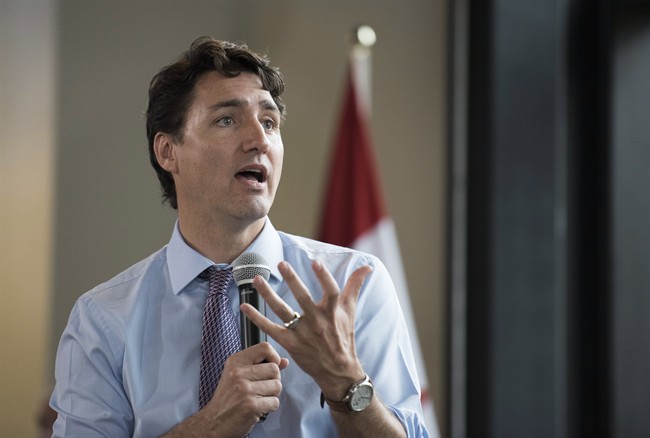Every Canadian member of Parliament and senator started getting bigger paycheques just days after the Liberal government released a budget projecting years of deficits and offering no plan to eventually balance the books.

While salary increases for parliamentarians are determined by a federal law, a secretive multi-party committee of MPs that oversees the House of Commons administration can decline a pay raise, and move to freeze their salaries through legislation.
With the Board of Internal Economy’s approval though, MPs will take home a base salary of $172,700 this year, up from $170,400 last year.
READ MORE: Trudeau government projects $28.5 billion deficit in 2017-2018
Many MPs, however, receive salaries beyond the base as compensation for additional roles and duties; Prime Minister Justin Trudeau will earn $345,400, while House Speaker Geoff Regan, interim Conservative Leader Rona Ambrose, and all ministers and ministers of state will earn $255,300.
NDP Leader Tom Mulcair, party whips, parliamentary secretaries and committee chairs all also receive additional salaries of varying amounts.
READ MORE: Liberals promised deficits to boost growth, but economy is doing just fine on its own
Senators, who by law required to receive annual salaries $25,000 less than MPs, will make $147,700 this year, up from $145,400 last year.
Neither Liberal cabinet minister Dominic Leblanc nor Conservative MP Gord Brown, who are the spokespeople for the Board of Internal Economy, responded to emailed questions asking why the board approved the raise when the government is dealing with deep deficits.

Get daily National news
One critic described the raise as “self-serving.”
WATCH: Feds reward executives behind failed Phoenix pay system with $4.8M in bonuses

“The context matters,” said Aaron Wudrick, national director for the right-leaning Canadian Taxpayers Federation. Part of that context is the deficits the Liberals are projecting, he said.
Whereas Trudeau campaigned in 2015 on running “modest” deficits of $10 billion, that figure has consistently ballooned since his election and is now expected to reach $25.5 billion by March 31, 2018.
“Whenever you have a weak economy, people are rightly upset when they see politicians taking a raise while private sector jobs are getting cut and wages frozen.”
WATCH: Donald Trump donates first quarter salary to government entity

The previous Conservative government froze salaries for all MPs, including cabinet ministers and then-prime minister Stephen Harper, as well as for all senators in 2010, as the global economic crisis hit. During a time of austerity, the government declared the wage freeze was an effort to “lead by example.”
WATCH: How is debt affected when the federal government tables a budget with a deficit?

That freeze lasted three years, until March 31, 2013. Since then, an MP’s base salary has increased 9.5 per cent to $172,700 from $157,730 – a difference of $14,970.
As reported by iPolitics on Wednesday morning, the salary bump for parliamentarians is higher than what the government agreed to pay its public servants and executives – 1.4 per cent compared to 1.25 per cent.
- Canadians involved in tourist bus crash in Dominican Republic, embassy says
- Canadians stuck in Middle East say cities ‘very tense’ as Iran conflict escalates
- Alberta mulls ditching time switch — again — as B.C. moves to permanent daylight
- In London, Poilievre pitches new UK, Australia, New Zealand partnership








Comments
Want to discuss? Please read our Commenting Policy first.